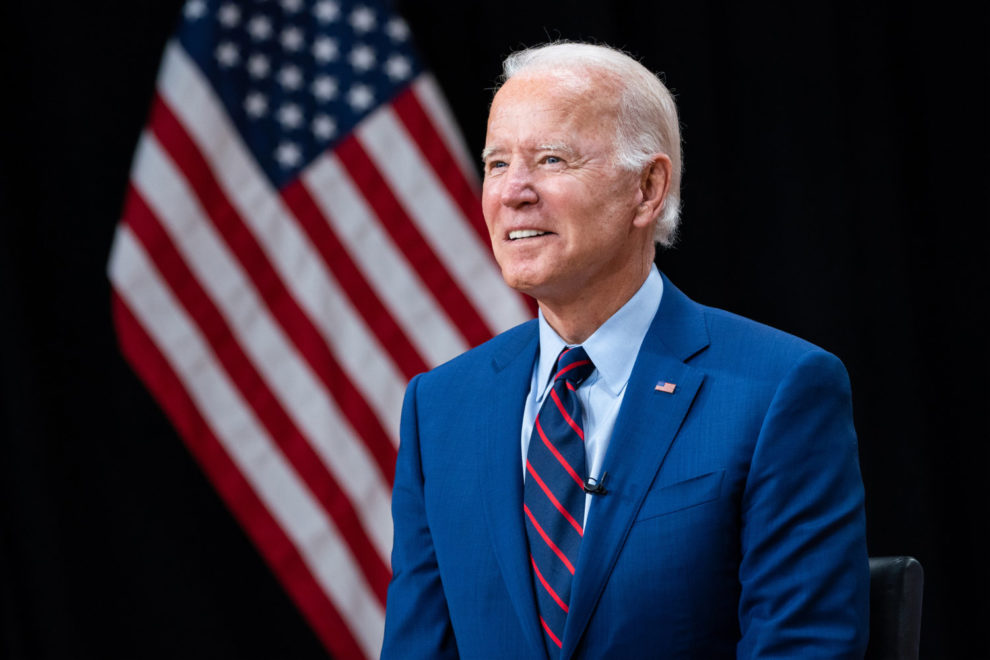The United States and Britain announced Tuesday they were cutting off Russian energy imports while multinationals Shell and BP said they would halt new oil and gas purchases, in a major tightening of the economic chokehold on Moscow over its invasion of Ukraine.
The moves mark an crucial escalation in international sanctions against Russia — Western allies had initially omitted energy, a crucial source of revenue for President Vladimir Putin’s government, from an array of economic penalties imposed in response to the attack.
President Joe Biden announced the US embargo on Russian oil, part of a broader prohibition including natural gas and coal, as his Democratic Party had threatened legislation to force his hand, despite the likely impact on already soaring gas prices.
“Russian oil will no longer be acceptable at US ports and the American people will deal another powerful blow to Putin’s war machine,” Biden said, adding that the decision was taken “in close consultation” with allies.
“Ukraine will never be a victory for Putin,” Biden vowed from the White House, minutes after Britain announced that Europe’s second-largest economy would phase out Russian oil imports by the end of the year.
Oil giants Shell and BP, both based in Britain, said they would stop buying Russian oil and natural gas immediately while Shell also pledged to shut down service stations as well as its aviation fuels and lubricants operations.
“We are working hard to continue to provide the energy that customers and economies need, using non-Russian oil and gas,” a BP spokesman told AFP.
The US ban has support from both parties in Washington, although economists have been divided on the effect of turning off the spigot, with oil prices already soaring above $120 a barrel.
Brent crude, the international benchmark, rose by more than five percent on news of Biden’s announcement.
US Speaker Nancy Pelosi told members Sunday that the House of Representatives was exploring a ban, as well as ending trade relations with Russia and Belarus and pushing to curtail Moscow’s access to the World Trade Organization.
Biden — initially reluctant but wary of appearing less tough than Congress on Putin — intervened personally, according to several US media outlets, phoning Pelosi to ask her to drop the initiative.
Pelosi said House Democrats would press ahead anyway with a vote Tuesday on the ban and other measures targeting the Russian ruble, which continued its precipitous fall to finish the US morning only just above half a cent.
– ‘Dramatic increases’ –
So far, European Union nations — who are far more reliant on Russian energy than the United States — have declined to take similar action.
Russia accounts for eight percent of US imports of oil and petroleum products, which means the impact on the world’s largest economy would be easier to bear.
The White House will nevertheless have to reassure voters already alarmed over spiraling gasoline prices, which are threatening Democrats’ chances of holding on to Congress in November’s midterm elections.
Americans are now paying an average of $4.17 per gallon, a 72 cent increase in just one month and the highest price at the pump since the global economic downturn of 2008.
“Bottom line is that the USA would feel some impact to the loss of supplies from Russia, but we are in a far better position than Europe,” energy analyst Andy Lipow said.
US officials, seeking to offset the loss of Russian oil, reportedly traveled to Venezuela over the weekend to meet with the government of Nicolas Maduro.
The South American country was once a top source of US oil, but Washington halted imports in 2019 following sanctions on the country.
Congressional Democrats have pushed back on the idea, however, voicing reluctance to switch from one unsavory regime to another.
“We shouldn’t be advancing other countries who don’t share our values,” Montana Senator Jon Tester told reporters.
In a Quinnipiac poll released before the White House announcement, 71 percent of respondents said they would support a ban on Russian oil even if it meant higher gas prices.
“The next step needs to be to work to get Europe to do the same thing, to wean themselves from Russian oil and gas,” Republican Senator Ted Cruz, who recently introduced a bill to “restore American energy independence,” told CNBC.
“And the way to do that is to have alternative sources, and the obvious alternative sources is the United States.”
